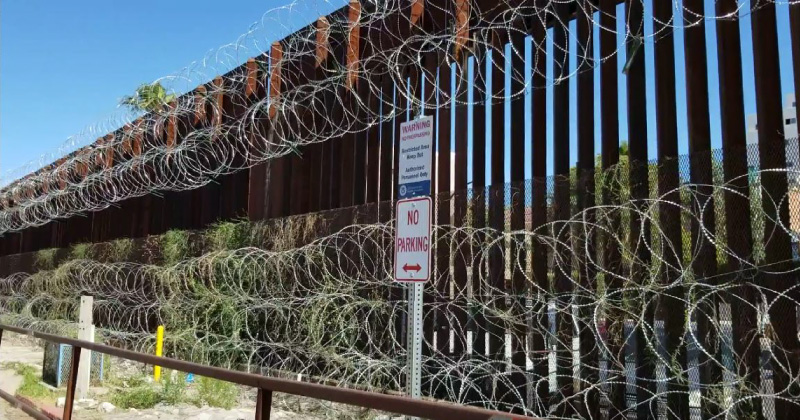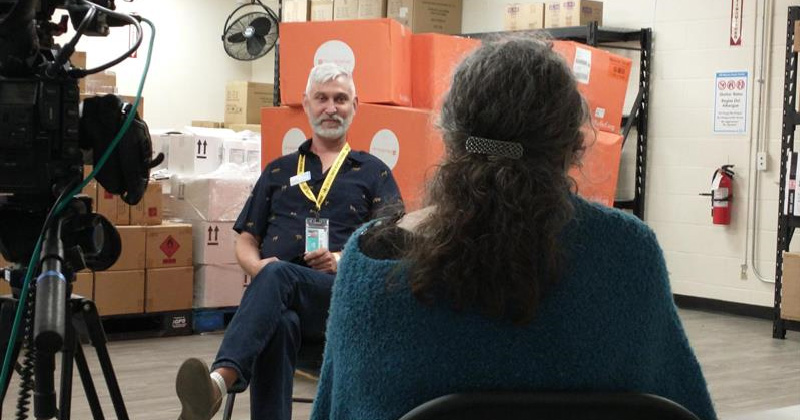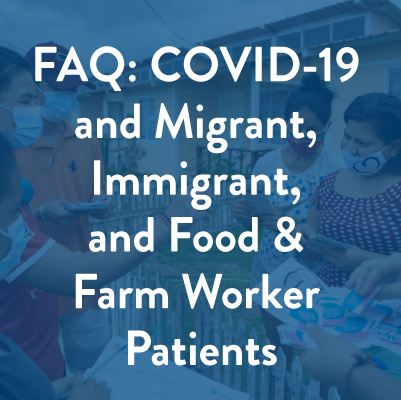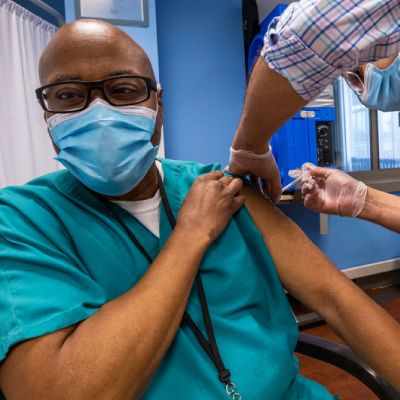- Who We Are
- Clinician Employment
- Publications
- Witness to Witness (W2W)
- Kugel & Zuroweste Health Justice Award
- Your Voice Matters: Photovoice Project
Asylum Seekers, Health Needs, Concertina Wire… and Hope: A View of the Entire US-Mexico Border, From the Health Provider’s Perspective
Wed, 06/09/2021 | by MCN Admin


At the end of May, Deliana Garcia headed to the US-Mexico border – not just to visit one border town, but to travel the entire length of the border on the US side, from San Diego, California to McAllen, Texas, stopping at respite centers and migrant shelters along the way. Garcia, the Director of International Projects and Emerging Issues for Migrant Clinicians Network, sought to better understand border issues and pressures by interviewing dozens of providers working in those centers -- doctors, volunteers, counselors, members of religious orders – who work with asylum seekers every day.
“We sought to see what motivates people on the border to do their work,” Garcia explained, noting that reporters typically seek out migrants, to tell their stories of violence and hardship, their difficult journeys to the border, and their treatment in detention. Few ask the providers who assist them once they arrive. “Instead, we talked to the people who are doing the work. Some of the stories that came out – what people had seen, or why they’re doing what they’re doing – they were very moving.”
Garcia recounts interviewing a man who works at a shelter. “And then it came out: he was in recovery. When he had finished his recovery, the place that helped him gave him a card that said that this place helped you – now you go out and help someone else,” Garcia recalled. The card set him on a path to work at a shelter for migrants and refugees. He welled up with emotion. So did those in the room with him. “People are out there for a number of reasons. They’re paying it back, they’re paying it forward, they’re overwhelmed – but each one of the stories is more than you ever imagined to hear from people,” Garcia said.

Garcia was joined by Marsha Griffin, MD, former MCN board chair and Director of Child and Family Health at the University of Texas Rio Grande Valley School of Medicine. She has worked closely with MCN to ensure that newly released asylum seekers with ongoing health needs are signed up with Health Network, MCN’s virtual case management program, at shelters and respite centers that receive asylum seekers from Immigration and Customs Enforcement when released from detention. Once released, most are taken in by such centers, that provide a meal, a shower, a place to recuperate and prepare to travel to their families, to their next destination in the US. A few of the centers have clinical staff on hand to provide basic health screenings as well, says Garcia, some of whom were interviewed on this trip, but many do not have medical care onsite. Asylum seekers who have health needs often struggle to get care in their new home. Health Network connects them with health centers in their next destination, gets them an appointment, and secures other needs like transportation or enrollment in sliding fee scale program. This has already assisted hundreds of people, including many pregnant women who struggle to enroll in prenatal care so late in their pregnancies.
The trip provided insight into the differences along the border. “If you’ve seen one border shelter, you’ve seen one border shelter,” Dr. Griffin noted, emphasizing how each shelter’s internal operations and local community are diverse. MCN’s efforts, which began in McAllen, Texas, are slated to grow; MCN is now seeking funding to help asylum seekers across the border region, to assist some of the shelters that the team visited.
Also joining the border trip was Diane Weidenkopf, a producer and director with Dfusion Films. Weidenkopf recorded each of the interviews. She hopes to develop short films and video clips to elucidate the struggles at the US-Mexico border, both for asylum seekers and the providers who serve them after they are released. The trio recorded interviews, to capture the hardships and hope of providers across the border region, juxtaposed with images from the border itself, from close community towns to the imposing border wall sliced with concertina wire.
Providers who were interviewed were emotional in telling their stories – why they do the work they do, how their work affects them. “There wasn’t one day with a dry eye,” Dr. Griffin said. “We were crying with those we interviewed.”
“The written word can be so compelling but listening to everyone’s story as we were taping, reminded me of the importance of seeing the faces as we are listening to words of those giving so much of themselves,” Garcia said. “The joy, wonder, pain, and hope written across those faces will stay with me.”
Learn more about MCN’s efforts at the US-Mexico border to serve the health needs of asylum seekers here.
Health Network finds health services for migrants in need, who often cannot access the services they need. Its unique services are unparalleled on the planet, as far as we’re aware: Health Network serves any person migrating anywhere in the world who has any ongoing health need. See how Health Network serves the health needs of migrants here.
Got some good news to share? Contact us on our social media pages above.
Return to the main blog page or sign up for blog updates here.







